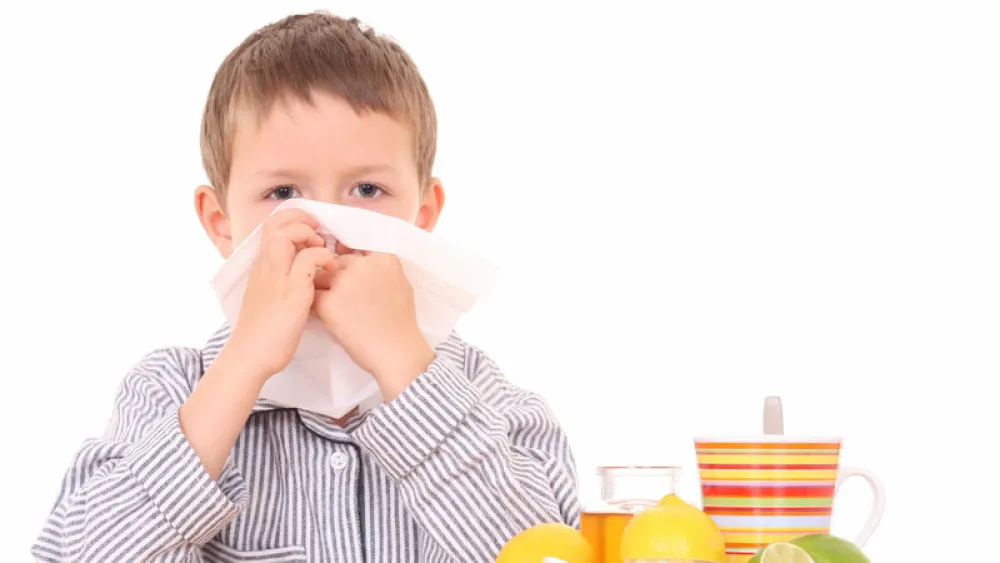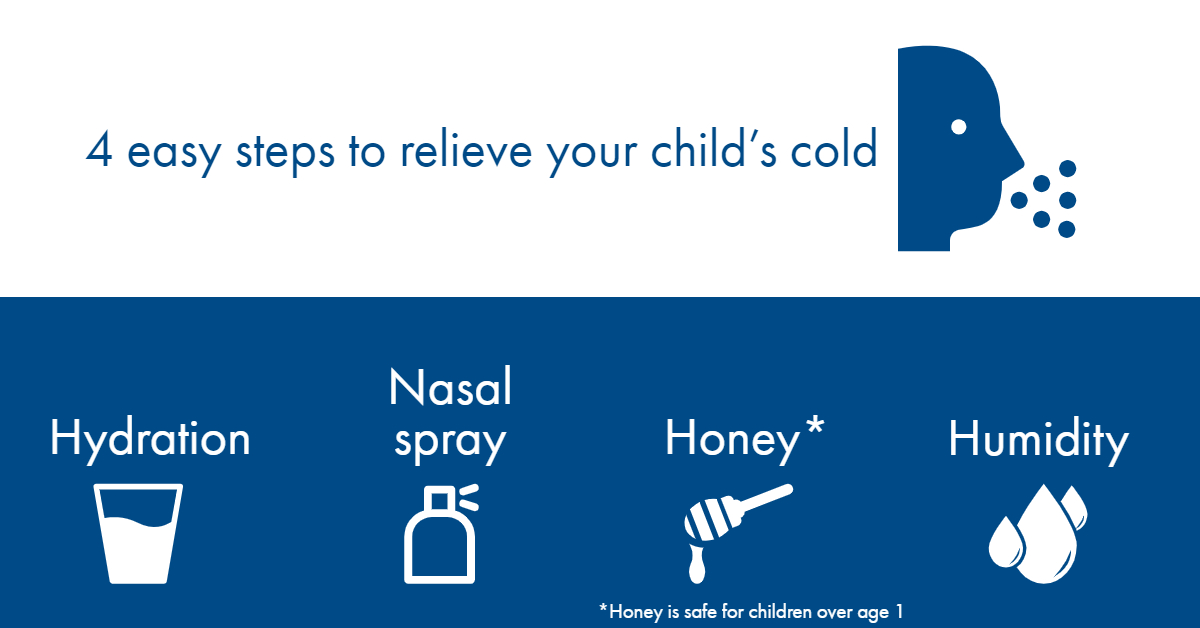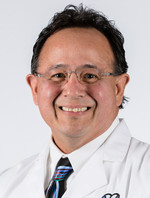Family Health
4 Tips To Ease Your Child's Cold


On average, little ones get between six and 10 colds each year – twice as many as adults.
That leaves many parents asking: What can we do to help?
What causes a cold?
Knowing a cold’s origin is a good place to start.
Most colds are the result of rhinovirus, though there are many other viruses that can cause common cold symptoms.
Is it actually a cold or something else?
Colds generally last between seven and 10 days and are characterized by symptoms like:
- Sore throat
- Runny nose
- Congestion
- Cough
- Sneezing
- Watery eyes
- Headache
- Body aches
In many cases, a cold simply has to run its course. As a parent, you know your child best. If you’re concerned, call us so we can help you provide the best care possible.
Is there anything my child can take to make it go away?
Unfortunately, not really. Antibiotic medicines target bacterial infections. Colds, on the other hand, or viruses don’t respond to antibiotics in the same way.
I also don’t recommend giving over-the-counter medications to children under age 2 because they don’t work and may actually have harmful side effects.
For children over age 2, I recommend talking to your health care provider before giving them any over-the-counter medications.

Find relief with these 4 tips
While there’s nothing that will get rid of a cold, as a parent, you can take steps to help address the symptoms and speed your child’s recovery.
Here’s what I recommend:
1. Keep your child hydrated. Juice or water keep the mucus of your child's nose and respiratory track thin, which makes it easier to flush out the virus.
2. Use saline nasal spray. When your child suffers from a cold, their nose often becomes clogged from the infection.
Using a saline nasal spray helps prevent the infection from settling in the sinuses. It can also help make blowing their nose more productive.
You can use nasal saline with an aspirator, a suction bulb or oral aspirator up to four times a day.
3. Ease your child's cough. Children 3 months old to age 1 can take warm, clear fluids such as apple juice or warm water to help loosen any secretions. I recommend 1 teaspoon to 1 tablespoon up to four times a day.
For children older than age 1, ½ teaspoon to 1 teaspoon of honey can help loosen the secretions.
Do not use honey with a child younger than age 1. Younger children who consume honey are at risk for infant botulism, a serious disease.
4. Increase the humidity. A cool mist humidifier can add moisture to the air and keep your child’s nose and airway from drying out.
If your child's symptoms are not disturbing their sleep and they do not have a fever over 102, no treatment may be needed. Infants between 3 and 6 months can be treated with acetaminophen.
Babies 6 months and older can be treated with ibuprofen. Never give young children aspirin, as it is associated with the rare but serious illness called Reye syndrome.


